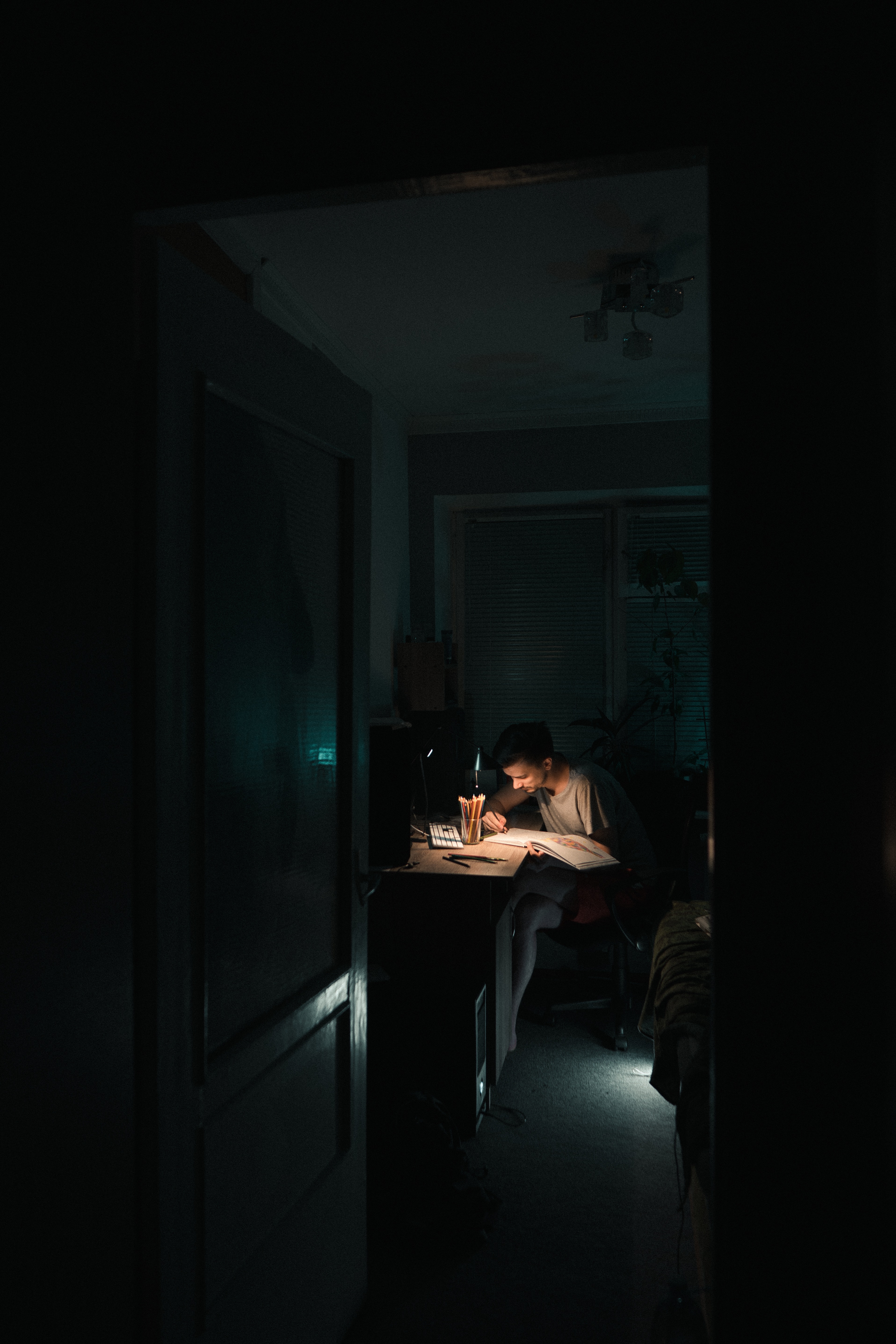When we awaken and see—in disgust—the clock showing 3:00 a.m., we are apt to blame ourselves for already ruining the next day.
It is the constant drive to maintain a tight schedule that pathologizes our wakefulness. It is said that 30 percent of our medical problems are—directly or indirectly—caused by sleep issues, some of which stem from the worry about enduring insomnia.
Anyone who is hoping to make peace with mild insomnia can discover a playful, contemplative side to nocturnal doings.
Historical evidence reveals that our natural body rhythm stirs us awake instinctually, wanting two blocks of sleep each night. This is a time to cuddle, to read, to enjoy the night sky, or ponder life—undisturbed.
People used to enjoy a “first sleep” followed by a “second sleep” up until the 1800s, after which parents were encouraged to reduce night-waking in their children. During this century, lamplight, and then electric light, became more prevalent, and “with darkness diminished, opportunities for privacy, intimacy, and self-reflection grew more scarce.”
In 2012, an article introduced a little cultural history, and our sleep obsession began to get some attention. Stephanie Hegarty’s article drew a lot of attention due to the hundreds of references founded by historian Roger Ekirch and written about in his book, At Day’s Close: Night in Times Past. His research revealed that it was common knowledge that people slept in two shifts.
“Don Quixote followed nature, and being satisfied with his first sleep, did not solicit more. As for Sancho, he never wanted a second, for the first lasted him from night to morning.” ~ Miguel Cervantes, Don Quixote (1615).
If it’s true that our minds and bodies feel more attuned to a broken sleep pattern, can we indulge in it?
What would be wrong with a warm cup of tea, a page of poetry, or some seated stretches before the embers of the fireplace?
Maybe we can relax into wakefulness in the night; we can step outside for 20 minutes and appreciate the constellations. Maybe someone we love is awake to join us.
There is a mischievousness to considering that if I wake, I can find the edge of joy, some humor, and explore what my body and mind would enjoy while the rest of the world dreams.
From the thousands of articles on insomnia, here is what I’ve found to be the most important and beneficial advice:
>> Don’t drink caffeine after 4:00 p.m.
>> Reduce alcohol consumption before bedtime.
>> Remove technology from the bedroom (computer, phone, television).
>> Slow down a couple of hours before bedtime.
>> Don’t eat heavy meals or spicy food before bed.
>> Meditate for a few minutes at night—create a bedtime ritual.
>> Make your bedroom a welcoming, nurturing place.
>> If you awaken, read for 15 minutes, and then lie down to rest again.
>> Don’t do strenuous exercise in the evening.
>> Reduce bedroom lighting.
>> Manage stress.
>> Try Yoga Nidra for returning to sleep.
These are excellent pointers for healthy rest, which we know has healing benefits for the mind and body. No matter how much you drive yourself to produce and succeed, you still need deep relaxation and good sleep.
My favorite aid for nighttime anxiety during my children’s youth was to remind myself, head on the pillow: “all my children are in their beds, and right now they are fine.” Zip. Zonk. Until tomorrow.
It might be hard to tolerate a broken sleep pattern knowing our commute to work awaits in the morning. However, the next time I am plagued with an overactive night-waking mind, I will experiment with making a cup of tea, sipping it under the stars, then treating my skin to a luscious oil before descending to the sheets for my “second sleep.”
I may have to put on a down jacket for that moon bathing, but what a glow I will bring back to my dreams!
~







Read 18 comments and reply